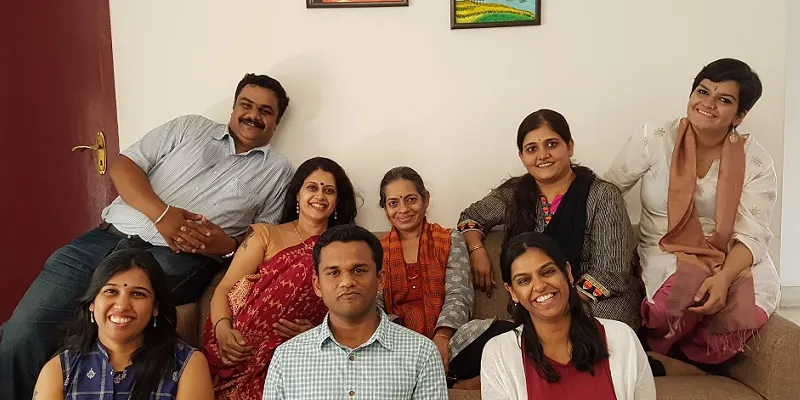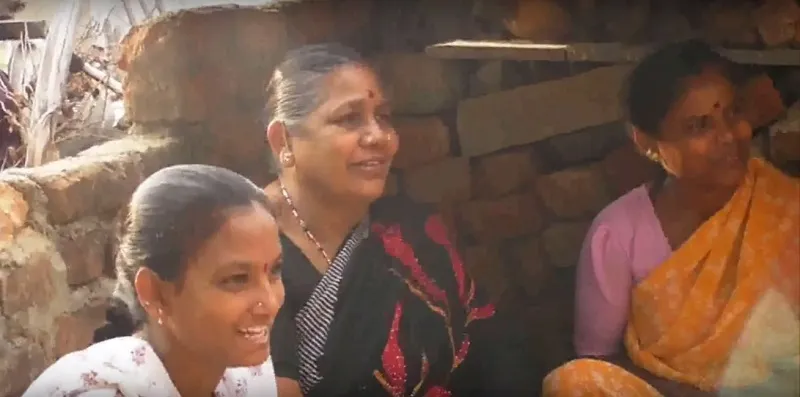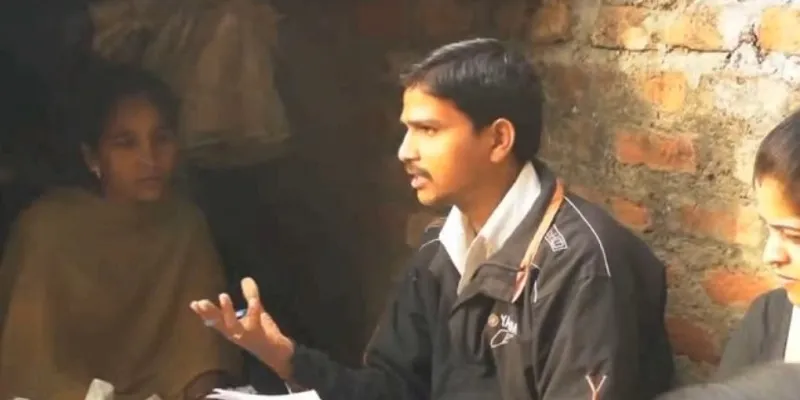How Jagriti is scripting change through letters
How can a transformative change be brought in marginalised communities with something as simple as letters? Tamaso ma jyotirgamaya, or darkness shall be dispelled by light.
For millions who live in poverty and ignorance, education is the light that can scatter the darkness in their lives and bring in positive change. Jagriti is a tool that has been designed and developed by Phicus Social Solutions, an NGO working primarily for the welfare of rural communities. The tool aims to disseminate knowledge to women from marginalised groups across India.
Jagriti has been crafted as a fictional character, a woman who is knowledgeable, empathetic, fearless, and independent. The information is passed on to the target audience in the style of letters written by this persona on issues affecting the everyday lives of women. In addition to the letters, the team has piloted audio clips as well, and a missed call service is also in the works.

Jagriti delivers information to rural, semi-urban, and urban underprivileged women on matters that concern them–health and hygiene, sanitation, water, livelihoods, government schemes, financial literacy, micro-entrepreneurship, women’s rights, trafficking, and HIV/AIDS, to name a few. She speaks in the language and dialect of her audience, sharing knowledge, anecdotes, information, and best practices.
The birth of Jagriti
The project was initially implemented in Karnataka in 2011, and expanded to Maharashtra in 2013, and has been reaching over nine lakh women across the two states.

Roshini Diwakar, who spearheads Jagriti, says, “We tied up with Grameen Koota Finances initially. We are expanding the project now, and are partnering with three organisations–Odisha-based Madhyam Foundation, which does extensive grassroots engagement with tribal groups, Radio Active, which is a community radio station based in Bengaluru, and Oniondev, which runs Mobile Vaani, a platform that provides access to information and entertainment through the mobile phone in Madhya Pradesh, Bihar, and Jharkhand.”
With Madhyam Foundation, the Phicus team is relying on letters, since these remote regions do not have access to quality connectivity. Radio Active is helping them reach a larger audience through the community radio, especially in semi-urban and urban areas. Oniondev, meanwhile, is hosting their audio clips on their platform. In addition to this, the team is also setting up a missed call service.
The Phicus team
Dr. Vandana Nadig Nair is the Founder of Phicus, and is the visionary behind the organisation, while Roshini Diwakar and Pavithra Gaikwad take care of the Jagriti project. Phicus is based out of Bengaluru, with a presence in Mumbai and Delhi as well. Their engagement with their implementation partners is ongoing, with the latter reporting back to them on a weekly basis. The Phicus team visits the sites once every quarter to collect data and monitor the project.


The team recently spoke about Jagriti at the Global Economic Summit at the World Trade Centre, Mumbai, on a panel titled ‘Women’s Empowerment through Capacity Building and Social Entrepreneurship’.
Jagriti – the vision
Research revealed what most of us instinctively recognise, that women are major decision makers when it comes to the lives of their children, and play a significant role in bringing together their communities at the local level. Unfortunately, women’s ability to affect change is mired in patriarchal institutions and traditions. Therefore, to enable women to initiate a domino effect of change, it is essential to create an enabling environment. Jagriti was born out of this belief.
Roshini explains, “One of the greatest constraints that we were operating under was illiteracy. While that opened up possibilities for a more audio-visual mode of communication, we were keen to create an easily replicable, scalable solution that was cost effective. This concern also determined the kind of implementation organisations we would be able to partner with.”
Their pilot implementation partner, Grameen Koota Financial Services, is a microfinance organisation that works extensively in southern India. Loan officers attend the weekly self-help group meetings, making them ideal implementing agencies for Jagriti.
The letters are written as simple and easy to understand stories, portraying Jagriti’s life experiences and the day-to-day decisions she made based on information she received. The letters would be read out during the weekly meetings by the loan officers, and a discussion would follow. Through the letters, Jagriti was positioned as a role model who would inspire and motivate other women to follow in her footsteps to empower themselves, their families, and their communities through information.
The audio clips feature Jagriti speaking on a topic and sharing insights from her life. The missed call service will allow for playback of the audio recording, as well as a feedback mechanism where women who called in could share their own stories.
Project Impact
An impact assessment conducted in 2015 revealed that Jagriti has a significant, tangible impact on the lives she reaches. The most heartening discovery was the very personal impact that Jagriti has had on some of the women’s lives. Many reported having greater self-confidence because of the information they received, and some even spoke about how they were treated with more respect within their communities as they are viewed as more knowledgeable.
Here are two anecdotes shared by women whose lives have been impacted by Jagriti, in their own words:
“After finishing meals, my elder daughter would usually clear all the plates, and it would be expected and taken for granted. Due to Jagriti’s intervention, I thought about it and told my son that each of us should clean our own plates. If there is an urgency, then yes, he can request his sister to clean his plate, but under normal circumstances, he should take care of his own plate. My husband also now insists on it. We realise that if we differentiate between our son and our daughter today, they will grow up to do the same, and it is important that we are responsible and teach them the right values at this young age.”
“We did not have toilets earlier, and everybody defecated out in the open. Jagriti then sent us a letter informing us that we should pool in our resources and get toilets built...She explained to us the ill effects of defecating out in the open – diseases can spread through flies that swarm over the excreta; we would then end up going to hospitals for treatment, which would lead to increased expenses! She also informed us of the benefits of using closed toilets – we could use it comfortably at night, without having to step out and worry about insects, snakes biting us, or getting pricked by thorns.”
As a concept, there is great potential for Jagriti to be used for improving lives in remote corners of our country.







